ᎾᎾᏛᏁᎮ ᎧᏃᎮᏍᎩ
Program Information
ᎢᏗᎦᏲᏟ ᎢᎪᎾ ᎢᎩᏚᎲᎢ
Reducing Hunger in our Community
The Tribal Food Distribution Program is dedicated to distributing nutritious foods to any eligible household that meets the following requirements:

1
Is within the Qualla Indian boundary.

2
OR includes at least one enrolled member of any federally recognized tribe AND is in Cherokee, Graham, Swain, Jackson, Buncombe, Macon or Haywood county.

3
And falls within USDA regulations and income limits.
ᎯᎠ ᎢᏨᏁᏗ
What We Offer
We provide fast access to high quality foods.
To sign up, call, email, or come in to set up an appointment.
Come to your appointment with the required documents.
We do our best to provide your first month’s supply of food right after receiving and approving your application. If you are unable to receive food at that time, arrangements can be made for next day pick up or delivery.
We have over one hundred items to choose from. On food pick up day, you choose which items from each of the foods group you would like to receive. USDA has developed a well-balanced food package for each participating household member. Dry goods, canned fruits, vegetables, meats and a choice of different types of fresh produce and frozen meats are available in the food package. The food packages are based on the size of the family and are to supplement the families’ food needs for the month.
Tribal Foods Distribution Program allows participants to select food items to help meet their nutritional needs.
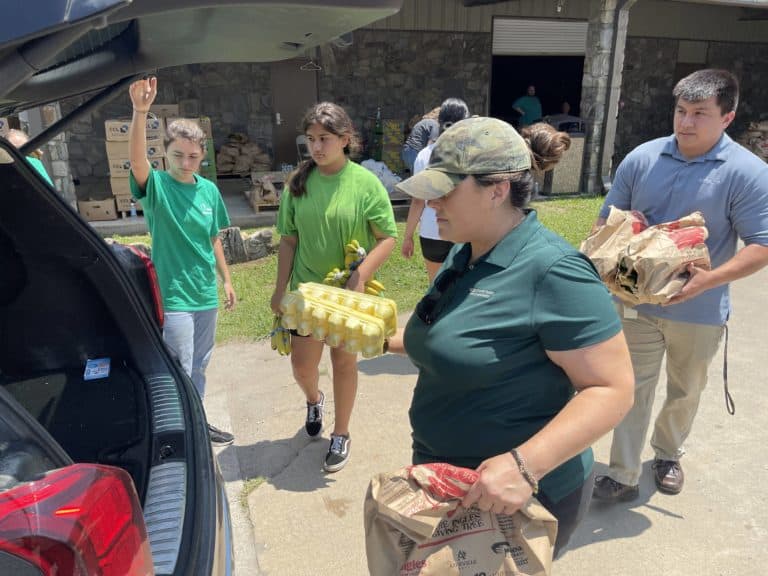

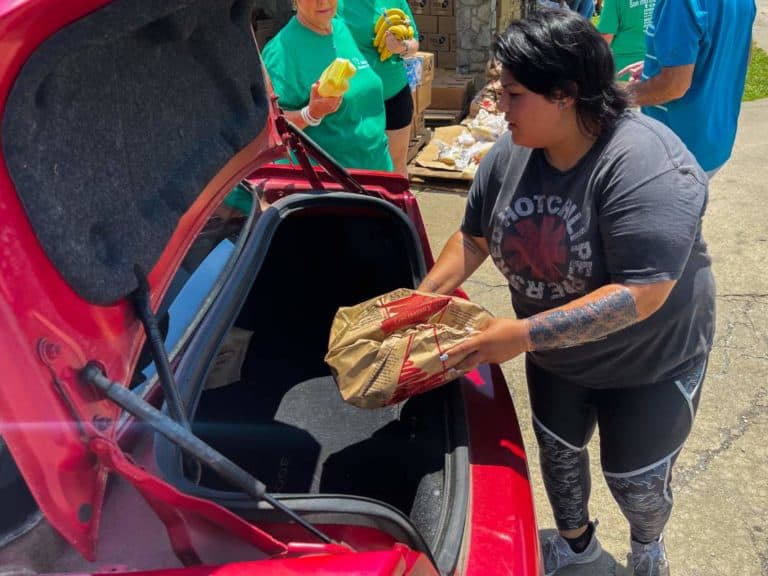
ᏱᎵᏊᏍᎪ ᏱᎦᏖᎳᏓ?
Do I Qualify?
If living on Tribal Lands, anyone is eligible to apply.
If living in the 7 county service area, must have at least 1 enrolled member of any federally recognized tribe in the household.
Can not participate in SNAP (food stamps).
Must meet income guidelines.
1. $1,514
2. $1,972
3. $2,430
4. $2,903
5. $3,399
6. $3,895
7. $4,354
8. $4,812
Each additional member $459
Guidelines in effect Oct. 1, 2022
Paid weekly – gross amount of check x 4.3 = gross monthly income (before 20% deduction)
Paid bi-weekly – gross amount of check x 2.15 = gross monthly income (before 20% deduction)
20% – 0.20 x gross income
Utility deduction – $400.00
Medical deductions – medical costs > $35.00
Child support – paid
Dependent care expenses
Home care meal-related deduction – $250
Proof of income or lack of income, residency, mailing, Proof of child support paid or received, Utility Bill, and ID.
Call to schedule an appointment.
General Questions
828-359-9751
Schedule an Appointment
828-359-9751
Application / Recertification Questions
828-359-9754
ᎦᏨ ᏃᎴ ᎲᎦ ᎢᏴ ᏓᎾᏓᏁ ᎠᎵᏍᏓᏴᏗ?
Where and When is Food Distributed?
Your next food pick up occurs 30 days after your last pick up. Rearrangements can be made to pick up a few days later if you will not be available on your next scheduled food distribution day.
If you are unable to come for pick up, we deliver within Qualla boundary and nearby. Call 828-359-9757, call or text 828-788-7195, or email to enquire about making arrangements for us to come to you. For Cherokee and Graham County residents, we offer food distribution once a month at regular locations. Please refer to our distribution calendar posted on Facebook and Instagram.
1st Tuesdays
9:00 am - 10:30 am
Cherokee County
John Welch
Seniors Center
302 Airport Rd
Marble, NC
1st Tuesdays
11:30 am - 1:00 pm
Graham County
Jacob Cornsilk
Community Complex
60 Snowbird School Rd
Robbinsville, NC
ᎠᎵᏍᏓᏴᏗ ᎤᏂᏍᏆᏂᎪᏙᏗᎯ
Manna Food Bank
Tribal Foods has partnered with Manna Food Bank to deliver thousands of meals to Cherokee, NC.
Anyone may come on Manna Food days to receive a nutritious share of food.
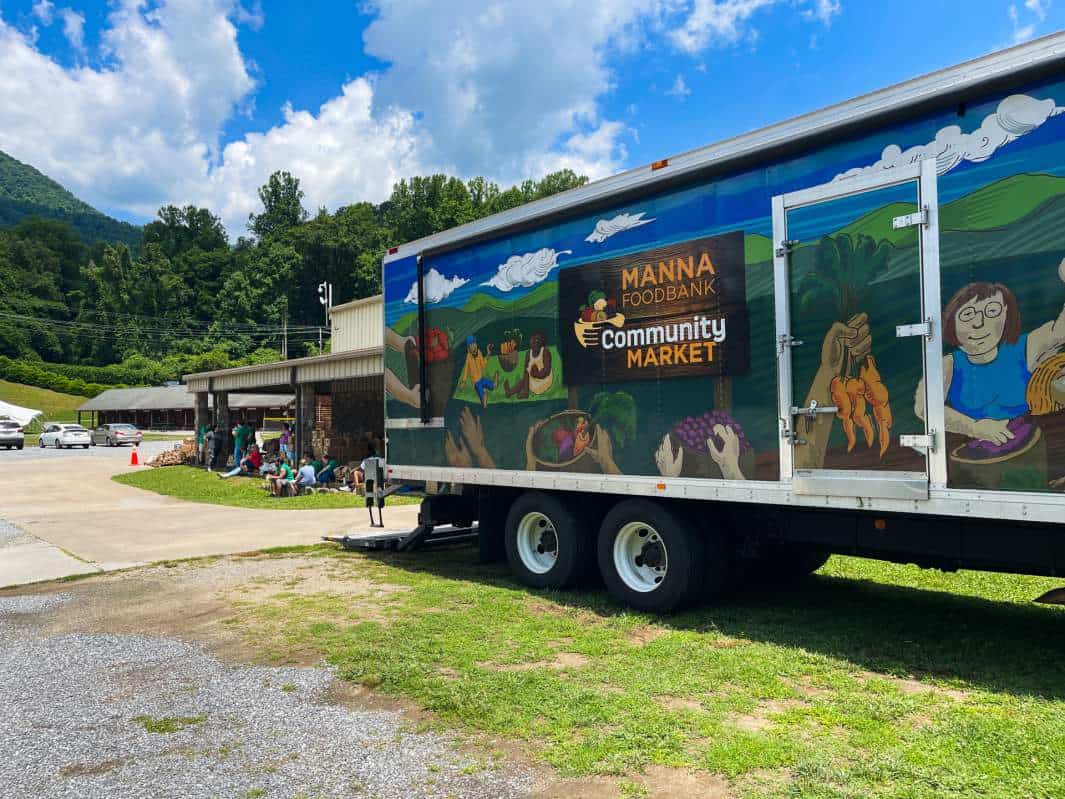
ᎠᏎᎸᎯ ᎢᏯᏛᏅᏗ ᎣᎦᎵᎪᎯ
Program Partners
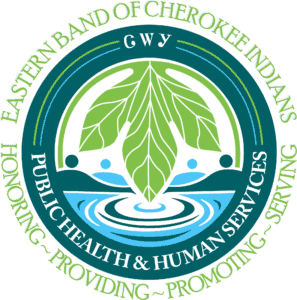

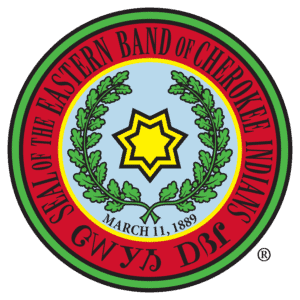

This program is funded through the United States Department of Agriculture (USDA) and the Eastern Band of Cherokee Indians (EBCI).
The U.S. Department of Agriculture prohibits discrimination against its customers, employees, and applicants for employment on the bases of race, color, national origin, age, disability, sex, gender identity, religion, reprisal, and where applicable, political beliefs, marital status, familial or parental status, sexual orientation, or all or part of an individual’s income is derived from any public assistance program, or protected genetic information in employment or in any program or activity conducted or funded by the Department. (Not all prohibited bases will apply to all programs and/or employment activities.) USDA Non-Discrimination Statement.
To file a program discrimination complaint, a Complainant should complete a FORM AD-3027, USDA Program Discrimination Complaint Form which can be obtained online at: https://www.usda.gov/sites/default/files/documents/USDA-OASCR%20P-Complaint-Form-0508-0002-508-11-28-17Fax2Mail.pdf,from any USDA office, by calling (833) 620-1071, or by writing a letter addressed to USDA. The letter must contain the complainant’s name, address, telephone number, and a written description of the alleged discriminatory action in sufficient detail to inform the Assistant Secretary for Civil Rights (ASCR) about the nature and date of an alleged civil rights violation. The completed AD-3027 form or letter must be submitted to:
1. mail: Food and Nutrition Service, USDA
1320 Braddock Place, Room 334
Alexandria, VA 22314; or
2. fax: (833) 256-1665 or (202) 690-7442; or
3. email: FNSCIVILRIGHTSCOMPLAINTS@usda.gov
Individuals who are deaf, hard of hearing, or have speech disabilities may contact USDA through the Federal Relay Service at (800) 877-8339; or (800) 845-6136 (Spanish).


